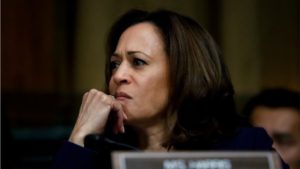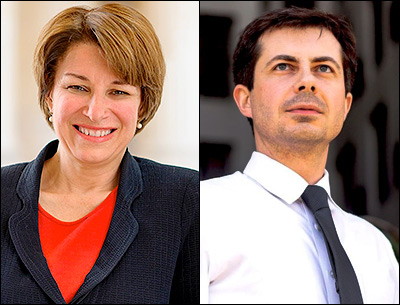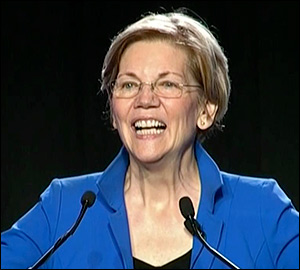By Jim Ellis

Democrat Sen. Kamala Harris of California
The California candidate filing deadline is tomorrow, so Sen. Harris deciding to end her presidential effort means she won’t be on the Golden State presidential primary ballot, and thus avoids an embarrassing loss within her own constituency. Recent polling was forecasting her in the single-digit range even in California.
Obviously, losing any race in one’s home state reveals political weakness, and though she is virtually invulnerable against a Republican in the 2022 general election, the same might not be true if her opponent were a strong Democrat.
Under the California election system that features the jungle primary concept, variations of which are also seen in Washington state and Louisiana, members of the same party can advance into the general election. Florida voters will have the opportunity of adopting that jungle primary concept via ballot initiative next year.
Because California and Washington hold regular primaries before the general election, a pair of candidates always advance irrespective of percentages attained. Conversely, Louisiana holds one election concurrent with the general, meaning a candidate exceeding 50 percent is elected outright; otherwise the top two finishers advance into a December run-off election.
In the California 2022 Senate race, for example, two candidates will move into the general election from their March or June primary (California has continually alternated their primary election dates between the two months, depending upon the political situation at the time the legislature acted) so long as more than one candidate files. Thus, a strong Democrat — and California has many such individuals — could challenge Sen. Harris, draw a relatively meager percentage in the primary while finishing second, and then rally to make a serious general election challenge against her.
Other previous presidential candidates have often found the political going much tougher than expected when returning home to seek re-election after engaging in the national contest, and it remains to be seen if Sen. Harris will find her road to re-election any bumpier.

 Oct. 31, 2019 — With six US House seats coming open in October, it’s a good time to re-set where the incumbent-less districts stand for the next election.
Oct. 31, 2019 — With six US House seats coming open in October, it’s a good time to re-set where the incumbent-less districts stand for the next election.

 Oct. 1, 2019 — The Democratic National Committee had barely announced the new qualification requirements for the November and December presidential debates when three candidates immediately proved they met the polling requirement and several others reached the halfway point.
Oct. 1, 2019 — The Democratic National Committee had barely announced the new qualification requirements for the November and December presidential debates when three candidates immediately proved they met the polling requirement and several others reached the halfway point.
